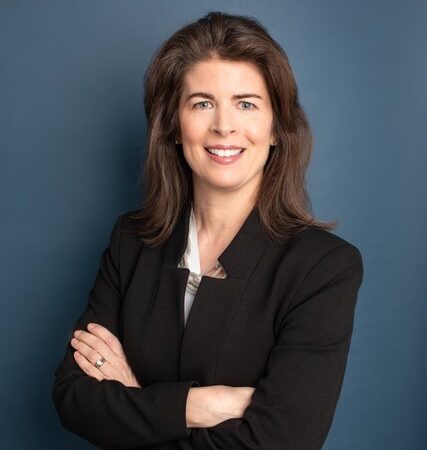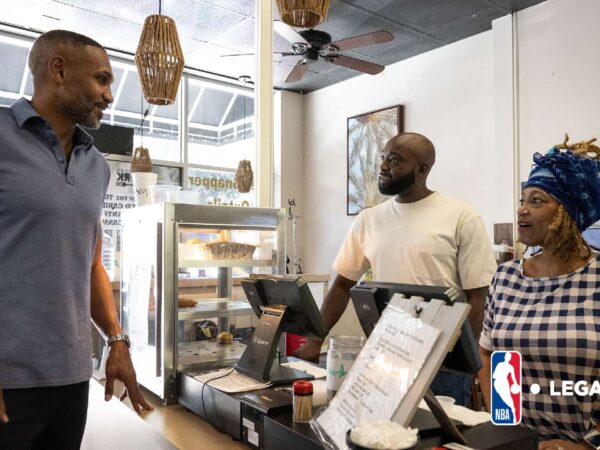Interview: Iosefa Alofaituli on CFPB Field Hearing
Welcome to the second blog in our series about the challenges and initiatives faced by the Consumer Financial Protections Bureau (CFPB). In this blog, Accion Opportunity Fund’s Regional Director, Iosefa Alofaituli, writes about his experience at a CFPB Field Hearing in Los Angeles:

Welcome to the second blog in our series about the challenges and initiatives faced by the Consumer Financial Protections Bureau (CFPB). In this blog, Accion Opportunity Fund’s Regional Director, Iosefa Alofaituli, writes about his experience at a CFPB Field Hearing in Los Angeles:
On Wednesday, May 10, I participated in a field hearing hosted by the Consumer Financial Protections Bureau, a governmental agency that protects consumers from harmful practices within the financial services industry. The hearing was held at the Japanese American National Museum in Los Angeles; the topic, data collection on trends and practices within the small business lending industry. The hearing brought together a rich mix of small business lenders, community advocates, elected officials, industry associations, small business owners, and banks. Accion Opportunity Fund was represented by myself and one of our small business clients, Marcia Charles, owner and operator of Pinky Rose Boutique.
Accion Opportunity Fund is the largest non-profit microlender in California has deployed $516 million and helped more than 20,000 people.
In response to the financial crisis of 2008, the CFPB was formed with several congressional mandates involving the protection of consumers from abusive financial practices. Among them was the authority to collect small business lending data. As it stands now, there is no single comprehensive survey of the small business lending field. Because of this, regulators have difficulty discerning what current practices within the industry are, what type of access consumers have to credit for their businesses, and what practices in the field are potentially harmful or discriminatory.
What we do know is that, since the financial crisis of 2008, small business lending by large commercial banks has dramatically decreased. This is despite the large role that small businesses have played in the economic recovery; small businesses currently employ approximately half of the U.S. workforce. Filling this gap in credit access is a mix of online lenders (FinTechs) and CDFIs, like Accion Opportunity Fund. These online lenders offer credit products that vary in terms of their quality and fairness towards small business borrowers. At their very best, these products are well-matched and provide small business owners with affordable credit in record time. At their very worst, APRs can reach as high as 300% and often affect minority and low to moderate income borrowers the most severely.
At the hearing, the CFPB and the public heard testimonies from a diverse panel of experts. These experts talked about the factors affecting the current rate of small business lending and also spoke at length about what they would like to see in the implementation of the CFPB’s data collection. My own testimony included the following three suggestions for the CFPB based on Accion Opportunity Fund’s own experience and research:
- First, it is critical that the CFPB collect data around the client’s race, gender, and geographic location to understand both where and to whom discrimination may be occurring.
- Second, the CFPB should collect data on both mainstream products such as term loans as well as alternative products such as merchant cash advances, to provide comprehensive data on all small business financing.
- Finally, Accion Opportunity Fund recommends that data be collected on financing interest rates, fees, and terms; as well as the default and repayment rates of a wide variety of loan products in order to evaluate the effectiveness of these products in responsibly serving small business financing needs.
Marcia also spoke at length about her experience with high interest loan products and how they almost led to the closure of her business due to exorbitant monthly fees and payments. Her story illustrates the urgency with which we encourage the CFPB to begin collecting data on the small business lending field. Unfortunately, Marcia’s experience of unfair treatment was echoed in many stories expressed by participants throughout the day – one can only imagine how many thousands of other small business owners are also affected.
Without a clear picture of trends and practices within the industry, abusive financial practices will continue to persist. In order to effectively identify and address discriminatory practices, regulators and advocates need access to comprehensive data about current industry trends. Opportunity Fund believes that the above points are essential to the establishment of fair oversight and protections for small business borrowers.
The hearing was followed by a call for written public comment from the CFPB on the topic of small business lending data collection. These calls for public comments generally precede the announcement of new rules or regulations. Accion Opportunity Fund plans to issue a written response to this request to offer our experience in the development of new regulations. To see the request for information released by the CFPB, click the following link: https://www.consumerfinance.gov/policy-compliance/notice-opportunities-comment/open-notices/request-information-regarding-small-business-lending-market/.



